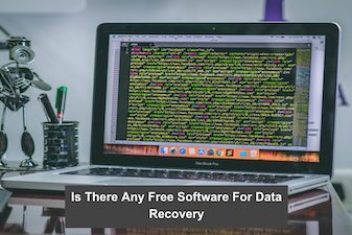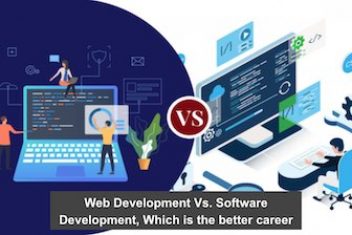You buy and sell goods in bulk in a wholesale business model. The benefit of buying in bulk is that you get higher discounts on price per unit. Sellers make huge profits by selling items in high quantities at reasonable prices.
But can wholesaling generate good revenue for you? Let’s study the pros and cons of a wholesale business in detail.
Pros
Higher Profit Margins
The biggest benefit of bulk purchasing from a manufacturer is that you pay a cheaper price per unit. When you buy in bulk, your suppliers also offer you great discounts. You sell these products to retailers at a comparatively higher price per unit. With a big profit margin, you can earn decent profits.
Read: How Can a SaaS Digital Marketing Company Help Your Business Grow
Targeting Specific Customers
Wholesaling focuses on selling items in bulk to other businesses. Most of the wholesale customers are retailers. They buy products from wholesalers for their retail stores and sell them to end consumers.
Wholesalers do not have to focus on a large pool of buyers. They set their focus only on their business customers.
Reduced Marketing Efforts
Since wholesalers target specific customers, they don’t work much harder in marketing. They don’t promote their businesses or products to the masses on a large scale. Their promotional efforts are limited to the business community.
Some of the places where wholesalers promote their businesses or products to retailers are:
- Classifieds
- Company meetings
- Social media platforms
- Trade shows or webinars
- Wholesale marketplaces
Lack of Competition
There are a lot of retail stores in the market. It’s tough competition in the retail industry. However, wholesaling is exempt from this heavy competition. Wholesalers deal in a very limited range as compared to retailers. They buy products from specific manufacturers and sell these to specific retailers. So, there are not many wholesalers around to give you competition.
Read: 9 Digital Marketing Strategies for Small Businesses
Strong Industry Foothold
You gain vast experience in the business community by dealing with manufacturers and retailers. Your expertise makes you a valuable asset to the industry. You also act as an intermediary between manufacturers and retailers.
Wholesaling requires large capital to invest. So, wholesalers buy large quantities of goods from manufacturers. They sell these to retailers in bulk who are unable to invest large capital.
As a wholesaler, you can establish strong relationships on both sides. With this, you can expand your business network. You can maintain a strong foothold in the industry.
Cons
Major Capital Investment
Acquiring products in bulk and suddenly losing relevance can turn your inventory into deadstock. Deadstock doesn’t sell; instead, it piles up storage costs sitting in your warehouse. So you lose both your investment and have to pay more.
Wholesaling requires you to spend a lot of capital. You need to pile up cash to invest in:
- Renting up a warehouse
- Designing your warehouse
- Buying a large amount of inventory
- Maintaining inventory in the warehouse
- Paying salaries to your warehouse employees
- Shipping products to the customers
Read: 10 Ideas for Creating a Viral Marketing Campaign
Working on Credit
Business relations often work on trust. When wholesalers deliver goods to retailers, the retailers do not necessarily pay right away. Wholesalers often have to work with retailers on credit. Retailers pay wholesalers after they have sold the goods.
So, wholesalers also have to face the worries of maintaining their cash flow. They have to go through the hassle of recovering the amount from retailers.
Limited Control Over Brand Promotion
Wholesalers do not have any direct interaction with end consumers. So, they’re unable to fully promote their brand to the consumers. They rely on retailers for marketing products to consumers.
Retailers display the products in their retail stores. They showcase these products to consumers.
Where to Run Your Wholesale Business?
There are a few places to run your wholesale business efficiently. For example, set up cash and carry stores. Or you can move your business online. Set up your own website. Or sell on online wholesale marketplaces.
Cash And Carry Stores
Cash and carry stores are wholesale clubs where wholesale customers pay for goods on the counter. The concept is that wholesalers do not sell goods to retailers on credit. Retailers have to clear their amount by paying right away. Then they take away their goods.
Read: The Secret To SEO For Financial Websites
Online Website
Setting up your own website for your wholesale business is a great idea. It opens up new avenues for you to explore for your business. Buy a good cloud hosting service and a domain for your website. Then, simply get started.
Design your website by implementing personalization for your buyers. Buyer demographics and their shopping carts can help you in it. You can show customized catalogs and search recommendations to your customers.
Provide a good experience to your customers just like you see on B2C eCommerce websites. Good user experience (UX) and user interface (UI) designs are essential ingredients for building an eCommerce website.
You can reap many benefits with your online wholesale website including:
- Complete control over your online store
- Effective communication with your customers
- A large pool of customer database
- Maximum promotion of your wholesale business
Online Marketplaces
Websites require you to spend some time and work harder. Contrary to that, online wholesale marketplaces get the job done for you. Marketplaces automate all of your tasks. Your only task is to create a seller account and begin selling. Hand over all of your worries to the marketplace and relax. Strengthen your relations with manufacturers and retailers through marketplaces.
You can get more benefits out of marketplaces by upgrading your seller account to premium.
Read: Innovative Approaches to Improve Your Digital Marketing
Faire
Faire is an online marketplace featuring a lot of independent brands and retailers from the world. Faire helps you in:
- Chatting with your customers in a complete messaging system
- Generating your invoices
- Managing your orders
- Promoting your brand to customers through email marketing
- Tracking your customers
SeeBiz
SeeBiz is a wholesale marketplace that aims at helping US sellers in growing their businesses. It provides assistive features for the B2B community.
It’s a one-of-a-kind social networking platform for the B2B community. With this platform, businesses can share products and updates with one another.
SeeBiz is also the first marketplace that introduces features to help sellers implement their perfect pricing strategy. You can divide your connections into groups and set different prices for each one. This group pricing feature helps you dynamically quote the best exclusive pricing to your special customers.
Other contributions of SeeBiz to the wholesaling community are:
- Promotion of your brand with:
- Advertisement on Google Ads
- Feature on the SeeBiz homepage
- Introductory videos
- Building your well-designed online store
- Revamp your product images
Handshake
Handshake is Shopify’s B2B wholesale marketplace which promotes brands and products from the US. You need to create a Shopify account. And you can integrate it into Handshake.
It does not charge any commission fees to the sellers on subscriptions or sales. Handshake has a large number of retailers on the platform. You can sell products of various categories here.
Conclusion
After studying the ups and downs of the wholesale business, you’ll be making your choice on starting it. We’ve also guided you through the ways on making it profitable. So, think about these factors and make a decision carefully.
If you like the content, we would appreciate your support by buying us a coffee. Thank you so much for your visit and support.



